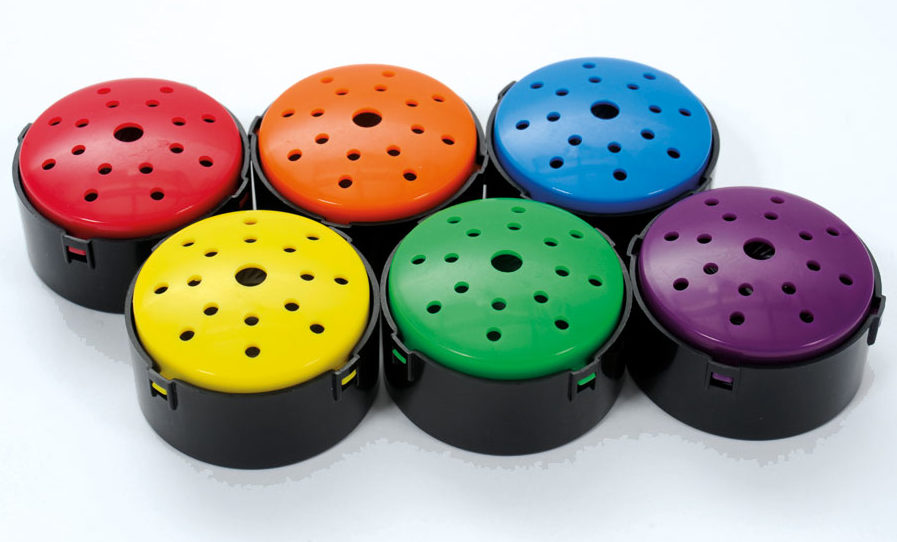There are many recordable resources on the market such as Talking Postcards and Talking Pegs. Recordable buttons such as Talking Points offer many solutions to many classroom problems – the ten ideas below are tried and tested, though I’m sure you will come up with many more of your own!
Here are my ten favourite ways to use this versatile resource:
- Support pupils in following instructions: Record yourself giving instructions as you issue them to your whole class. You can then pass the Talking Point to the pupil that needs frequent repetition. They can playback and check the instructions as many times as needed without asking you.
- Support home school communication: Use to record messages for home such as reminders about PE kits, payments, homework or changes of plan. Adults or the pupil themselves can record the messages. Many parents and carers find it helpful to record messages rather than write them.
- Supporting writing: Allow pupils to record their intentions for writing. Pupils can record their idea, write it down and playback their recording to check their writing.
- Create interactive and accessible displays: Record captions and questions for your displays. Pupils can record their own ideas and feedback.
- Support pupils during ‘choosing’ time: Adults can record directions for each activity. As pupils move to each activity they can replay the prompts to make sure they are doing the ‘right’ thing.
- Support pupils in positions of responsibility: Pupils can record the messages that they are asked to take to other classrooms or school staff. They can then play them on the way so that they are more reliable and independent in delivering the right message to the right person.
- Build confidence: For pupils that are reluctant talkers, Talking Points can be used to record what they want to say and playback to their peers. This can remove some of the fear of talking aloud.
- Develop comprehension: Record captions for pictures. Allow pupils to match the correct Talking Point to the correct picture. This could make a fine game!
- Develop reading skills: Record single words or sentences. Pupils can match the Talking Point to the words or sentences. This provides several opportunities for self-checking.
- Develop independence: Allow pupils to create their own checklists. These could be steps to complete a task or equipment required for a lesson.
This article has been written by Beccie Hawes

Beccie has worked in all aspects of Special Educational Needs including mainstream, additionally resourced provision and specialist settings. She has extensive experience as a SENCo, Inclusion Manager, Lead Local Authority SEND Advisory Teacher and has set up and led an inclusion advisory service.
Beccie is currently proud to be the Head of Service with Cadmus Inclusive, part of Cadmus Services, which is based in Walsall. This service has a national reach and actively supports schools with all aspects of providing a high quality education for vulnerable learners. Beccie is the author of ‘The Complete Dyslexia Toolkit’ and co-author of ‘Getting it Right for SEND’ and ‘How to Create the Perfect Partnership with Parents’. Beccie also writes the national Ebriefing: SEND Bitesize. She has developed a number of educational resources to support learners which schools across the UK have purchased and use. Beccie remains very ‘hands on’ in the classroom and is passionate about being at the chalk face to support teachers and children to think differently for a brighter tomorrow. She is also the mum to four boys and a dog.




